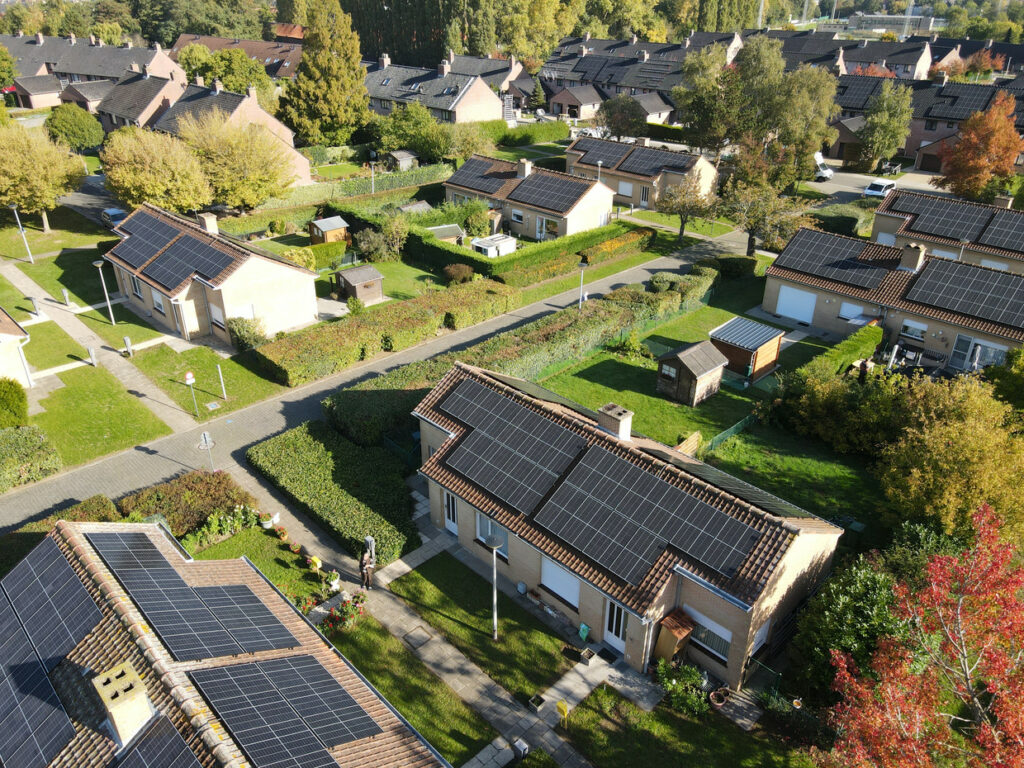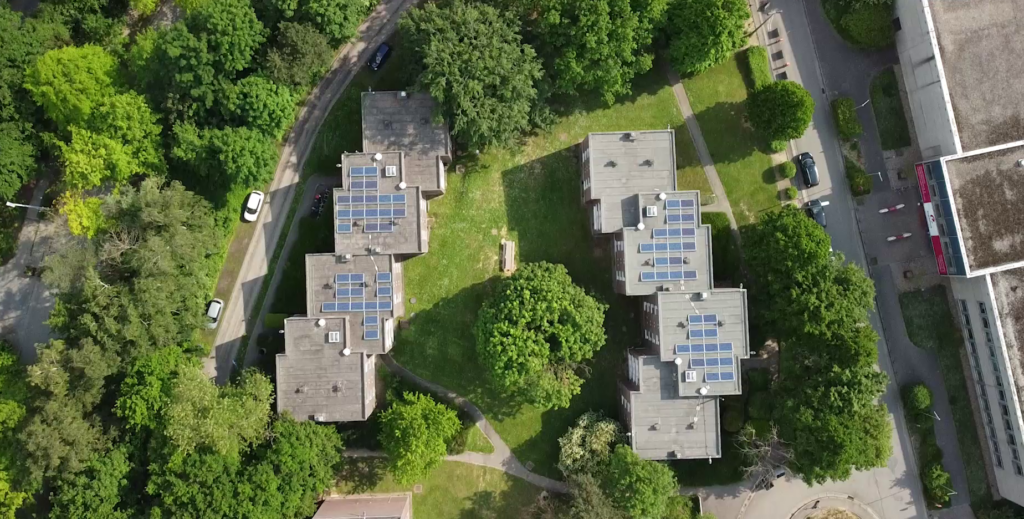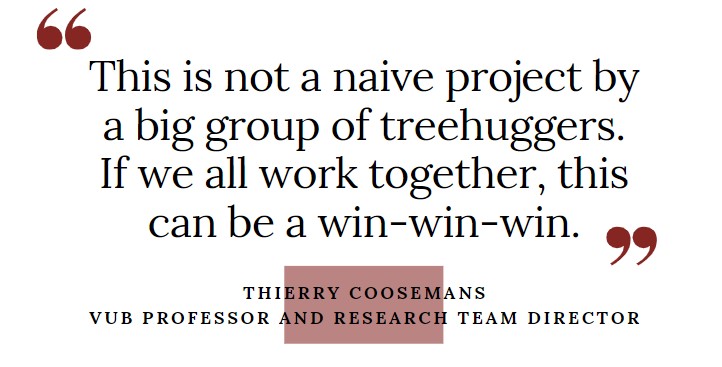What if there was a way to reduce your energy costs by setting up your own renewable energy hub to share with your neighbours? Thanks to the nationwide 'Renaissance' project, engineers from the Brussels VUB university are setting out to make what might seem a far-off fantasy a reality.
Speaking to The Brussels Times, the project's director and communications manager, VUB professor Thierry Coosemans and project manager Rebecca Hueting stressed that energy-sharing communities are central to cleaning up European energy. The team hopes for a revolution of the worldwide energy market.
"In these communities, stakeholders work together to produce local, renewable energy that is also consumed locally – essentially creating a small energy island," Coosemans explained. "That island is then managed as a small grid, in collaboration with the exterior network."
In practice, these stakeholders can be regular citizens, but also companies or (local) authorities. While a number of obstacles must be tackled, the biggest advantage is that participants can share the costs of investing in renewables rather than having to pay for it all themselves.
Power in numbers
In September 2022, Belgium's first energy community was launched in the city of Mechelen, with 70 homes and 15 apartments sharing the yield of the 729 solar panels on their roofs. Because they are sharing, all of them pay €0.16/kWh for electricity – significantly less than the social rate of €0.23/kWh and far below the regular rate of €0.60/kWh.
The emphasis on co-creating sets the VUB's Renaissance project apart: from the outset, all stakeholders were involved in the process of designing the community they would become part of. Participation was absolutely optional and members were free to back out at any time. All the same, larger communities are more resilient than smaller ones.
"If you have a community with just five partners and one of them decides to pull out, there could be an issue with the whole," said Hueting. "Losing two people in a community of 300 is not a problem, but if it's two people from a community of five, that's another story entirely. In the longer term, a large community will also be less sensitive to market volatility."
Coosemans compared it to installing solar panels or insulating your home as an individual: investing as a community will pay dividends over the years. "The difference is that a lot of people cannot individually make that investment; an energy community can pool resources more easily."

Credit: EnergyVision
Energy communities are also less dependent on external sources of energy and potential price increases that can entail. "The cost depends on how much energy you can produce and how much you consume. The more efficiently costs are shared, the more cost-effective being part of the energy community is," said Hueting.
On top of that, active community members are more aware of how much energy is being produced and consumed and can then adjust their consumption to the amount of energy available. "It almost doesn't matter what happens in the European market, only what happens in your specific community."
The potential savings depend on various factors, from how much people are willing to invest upfront to simple geographical circumstances, Coosemans explained. "The difference can range from 1% to 30%. It's easy if you set up somewhere with a lot of wind and/or sun, but it will be a lot more difficult if you do not have either."
While having more energy sources will increase resilience, it will also lead to great upfront costs. But for Hueting, this is a minor concern, explaining that the greater the size of the community, the larger the potential returns.
Sharing the costs, sharing the gains
In Belgium, covering the roof of a detached house with solar panels should normally be sufficient for your yearly electricity consumption. "But if that house is a five-floor apartment building, that energy has to be divided by five – meaning it will only cover 20% of every household's costs," Hueting explains.
A smaller, modular organisation of the energy market is possible and energy communities will play a role in realising that by distributing energy in smaller units, added Coosemans. "The future will be a mix of centralised and locally-produced energy. We will still need a base supply but this diversifies the energy market."
Finland is already producing more than 70% of its own electricity from local and diverse sources; as a result, it was less affected by the energy crisis following Russia's invasion of Ukraine. For the researchers, this shows the potential of locally-produced renewable energy in the rest of Europe as well.
"Imagine that renewable energies (such as solar panels or wind turbines) are installed on every rooftop in Europe. If those are implemented to the maximum potential we could have 50% of our energy from locally produced renewable sources," said Hueting, who believes that 20-30% of renewable electricity could be produced within energy communities.
While critics argue that the people investing in energy communities are only "a minority of a minority", Coosemans and Hueting highlighted the role that solidarity currently plays in assuring energy security: "Many people don't realise, but I am already paying for your connection to the grid, and you are paying for mine."
Related News
- Flanders gives €18.4 million to circular projects to transform supply chains
- Sharing green energy: 200 proposals for energy communities in Brussels
- Flemish agreement paves the way for widespread 'burden sharing' on climate action
Hueting stressed that depending on the other members of the community does not mean paying more than your neighbour. Rather, it ensures that the final bill will be lower by encouraging the community to behave more energy-efficiently. "Consumers start checking out the best ways to make do with the energy that they have. If you become more attentive to your consumption habits and related impacts, you also become aware of how small changes can reduce bills by up to 30%. And if you know how to do that, why wouldn't you?"
Coosemans emphasised the proven benefits of energy sharing, arguing that it is not just "a naive project" proposed by "a big group of treehuggers" but has a strong focus on the economic advantages, allowing people to control their bills better. "If we all work together, this is a win-win-win."


